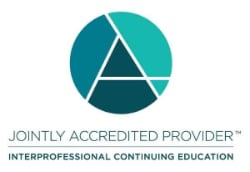From Culture to Cells (and back): A renewed trauma-informed, systems-based approach to assessment, treatment and prevention of addiction
From Culture to Cells (and back): A renewed trauma-informed, systems-based approach to assessment, treatment and prevention of addiction
A renewed trauma-informed, systems-based approach to assessment, treatment and prevention of addiction
Presented By
-
 Constant Mouton, MBChB, FCPsychSA, KNMG Psychiater, CAIMore Info
Constant Mouton, MBChB, FCPsychSA, KNMG Psychiater, CAIMore Info
Brought to You By
Dates and Times
-
-In-Person
Location
-
Northern Hemisphere A3/4Walt Disney World Swan Reserve
Lake Buena Vista, FL 32830
Trauma and addiction affect all levels of human existence. We experience trauma on individual, family, community and global levels. It changes the biology of cells, how we function psychologically and even the cultures we live in.
Dr. Mouton explores how trauma and addiction affect all systemic levels (biology – psychology – family – friends – community – culture – politics – spirituality) and how these systems interact. He will present a modernised, integrative approach to culturally sensitive, trauma-informed biopsychosocial care through case examples. He will link this to treatment interventions and prevention that can be implemented clinically, aligning with the values of and strengthening existing care models.
- • Counselors
- • Addiction Counselors
- • Social Workers
- • Licensed Marriage and Family Therapists
- • Physicians
- • Nurses
- • Psychologists
At the end of this course, participants will be able to:
-
Describe 1 way trauma and addiction impacts humans biologically, psychologically, familial, on a community level and culturally.
-
List 3 ways to collect relevant information from a client on all systemic levels and design a culturally appropriate, trauma-informed interpretation of the client's needs.
-
Describe at least 2 strengths/components of resilience of all systemic levels.
-
Create a preliminary, comprehensive, holistic treatment plan, including all systemic levels, to promote healing across systemic levels.
-
Describe at least 2 ways the approach can be integrated into current care models and align with facility values to improve outcomes.
-
Lehman, BJ, David, DM, Gruber, JA. Rethinking the biopsychosocial model of health: Understanding health as a dynamic system. Soc Personal Psychol Compass. 2017; 11:e12328. https://doi.org/10.1111/spc3.12328
-
Damsgaard JB, Angel S. Living a Meaningful Life While Struggling with Mental Health: Challenging Aspects Regarding Personal Recovery Encountered in the Mental Health System. International Journal of Environmental Research and Public Health. 2021; 18(5):2708. https://doi.org/10.3390/ijerph18052708
-
Alan J. Card (2022) The biopsychosociotechnical model: a systems-based framework for human-centered health improvement, Health Systems, DOI: 10.1080/20476965.2022.2029584
-
Kirmayer, L. J. (2023). A cultural-ecosocial systems view for psychiatry. Frontiers in Psychiatry, 14. https://doi.org/10.3389/fpsyt.2023.1031390
-
Weiss, Mitchell G. MD, PhD; Aggarwal, Neil Krishan MD, MBA‡; Gómez-Carrillo, et.al. Culture and Social Structure in Comprehensive Case Formulation. The Journal of Nervous and Mental Disease 209(7):p 465-466, July 2021. | DOI: 10.1097/NMD.0000000000001346
TPN.health has been approved by NBCC as an Approved Continuing Education Provider, ACEP No. 7267. Programs that do not qualify for NBCC credit are clearly identified. TPN.health is solely responsible for all aspects of the programs.
Course meets the qualifications for hours of continuing education credit for LPCCs as required by the California Board of Behavioral Sciences. TPN.health is approved by the California Association of Marriage and Family Therapists to sponsor continuing education for LPCCs. TPN.health maintains responsibility for this program/course and its content.
Trusted Provider Network, LLC is recognized by the New York State Education Department’s State Board for Mental Health Practitioners as an approved provider of continuing education for licensed mental health counselors. #MHC-0220.
This course has been approved by TPN.health, as a NAADAC Approved Education Provider, for educational credits. NAADAC Provider #198061, TPN.health is responsible for all aspects of the programming. Counselor Skill Group: Legal, Ethical and Professional Development.
TPN.health, #1766, is approved to offer social work continuing education by the Association of Social Work Boards (ASWB) Approved Continuing Education (ACE) program. Organizations, not individual courses, are approved as ACE providers. State and provincial regulatory boards have the final authority to determine whether an individual course may be accepted for continuing education credit. TPN.health maintains responsibility for this course. ACE provider approval period: 03/31/2022 – 03/31/2025. Social workers completing this course receive 1.5 continuing education credits.
Course meets the qualifications for hours of continuing education credit for LCSWs as required by the California Board of Behavioral Sciences. TPN.health is approved by the California Association of Marriage and Family Therapists to sponsor continuing education for LCSWs. TPN.health maintains responsibility for this program/course and its content.
Trusted Provider Network, LLC is recognized by the New York State Education Department’s State Board for Social Work as an approved provider of continuing education for licensed social workers #SW-0654.
Course meets the qualifications for hours of continuing education credit for LCSWs as required by the California Board of Behavioral Sciences. TPN.health is approved by the California Association of Marriage and Family Therapists to sponsor continuing education for LMFTs. TPN.health maintains responsibility for this program/course and its content.
Trusted Provider Network, LLC is recognized by the New York State Education Department’s State Board for Mental Health Practitioners as an approved provider of continuing education for licensed marriage and family therapists #MFT-0097.

In support of improving patient care, this activity has been planned and implemented by Amedco LLC and TPN.Health. Amedco LLC is jointly accredited by the Accreditation Council for Continuing Medical Education (ACCME), the Accreditation Council for Pharmacy Education (ACPE), and the American Nurses Credentialing Center (ANCC), to provide continuing education for the healthcare team.
Amedco Joint Accreditation #4008163.
Amedco LLC designates this live activity for a maximum of 1.5 AMA PRA Category 1 CreditsTM. Physicians should claim only the credit commensurate with the extent of their participation in the activity.

In support of improving patient care, this activity has been planned and implemented by Amedco LLC and TPN.Health. Amedco LLC is jointly accredited by the Accreditation Council for Continuing Medical Education (ACCME), the Accreditation Council for Pharmacy Education (ACPE), and the American Nurses Credentialing Center (ANCC), to provide continuing education for the healthcare team.
Amedco Joint Accreditation #4008163.
Amedco LLC designates this activity for a maximum of 1.5 ANCC contact hours.
TPN.health is approved by the American Psychological Association to sponsor continuing education for psychologists. TPN.health maintains responsibility for this program and its content.
-
Workshop Begins
-
Workshop Ends

